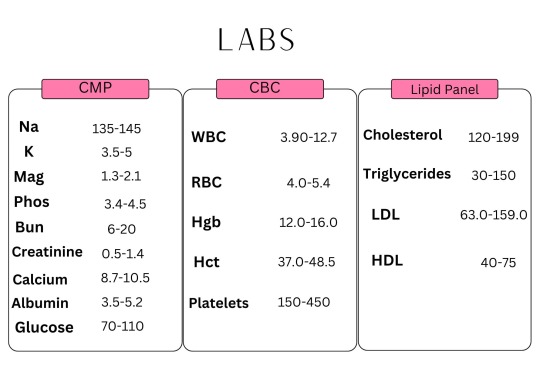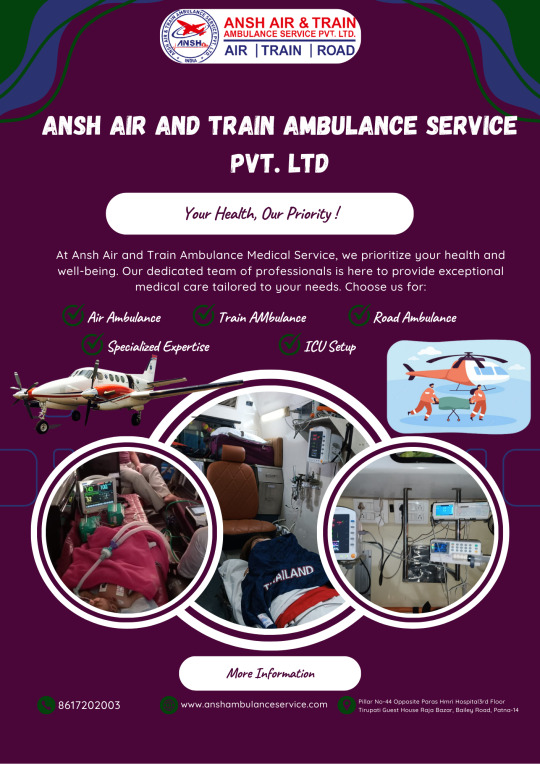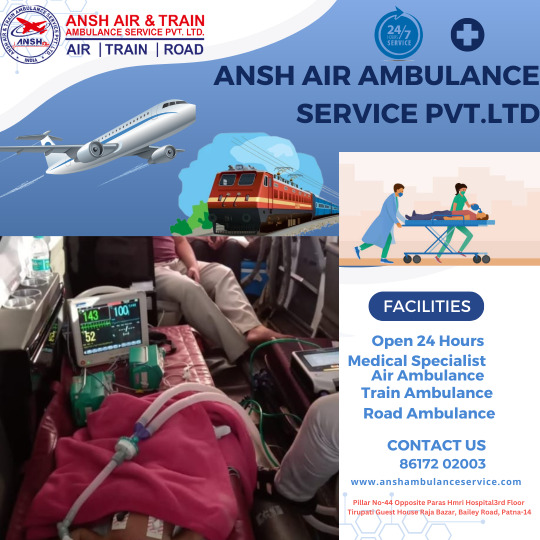#icucare
Text


Between the OR and the ICU always finding some time for coffee 🤍
#studyblr#med life#medicine#studyspo#studystudystudy#studying#medical students#medblr#medical school#med#study motivation#medical studyblr#study hard#study aesthetics#motivation#hospital#clinical rotations#icucare#photography#dark academic#medecine university#uniblr#100 days of productivity#study inspo#linastudyblrsbog
123 notes
·
View notes
Text

#icunurse#nursing school#nursing#etsy#icucare#hospital#icu#health and wellness#healthcare#diagnosis#diagnostic management software#medblr#patientcare#patientsafety#medical care#bloodwork#labs#note cards#reference#nursing studyblr#nursing student
3 notes
·
View notes
Text
anshospital.in
Embark on the journey of hope and healing at ANS Hospital's ICU in Patna.🌈 Our commitment to excellence in healthcare is echoed by our patients. 🙌🏥 Experience the best ICU facility in Patna through the heartfelt gratitude of those we've helped recover. Your well-being, our priority.
#anshealthcare#besticucare#hospitalwellness#patientexperience#icucare#anshospital#healthcareexcellence#patnawllness#healingjourney#ansjoyfulbeginnings
0 notes
Text

Ansh Air Ambulance Service provides rapid and reliable medical air transport, ensuring swift patient transfers with expert medical care. Committed to saving lives during critical emergencies.
~
Web @ https://bit.ly/3bUndm5
More @ https://bit.ly/3nCNibJ
#airambulanceservice#trainambulanceservice#airambulanceserviceindia#emergencyairambulance#doctorsairambulancve#ICUairambulance#ambulance#ICUAmbulance#ALSAmbulance#cardicambulance#airambulance#charteraircraft#privatecharteairambulance#24hoursairambulance#ICUcare#medical#hospital#doctors#anshairambulance#hitechmdical#doctorsfacility
0 notes
Text

Ansh Air Ambulance Service is a dedicated medical transportation provider, ensuring swift and safe air travel for critical patients. Our expert team delivers compassionate care in emergency situations.
~
Web @ https://bit.ly/3bUndm5
More @ https://bit.ly/3nCNibJ
#airambulanceservice#trainambulanceservice#airambulanceserviceindia#emergencyairambulance#doctorsairambulancve#ICUairambulance#ambulance#ICUAmbulance#ALSAmbulance#cardicambulance#airambulance#charteraircraft#privatecharteairambulance#24hoursairambulance#ICUcare#medical#hospital#doctors#anshairambulance#hitechmdical#doctorsfacility
0 notes
Text

Siya Air Ambulance Service is a leading medical transportation provider, specializing in air ambulance services. With a dedicated team of experienced medical professionals and state-of-the-art aircraft, they ensure safe and efficient patient transfers, offering critical care in transit.
~
More Visit: https://siyaairambulance.in/
#airambulanceservice#trainambulanceservice#airambulanceserviceindia#emergencyairambulance#doctorsairambulancve#ICUairambulance#ambulance#ICUAmbulance#ALSAmbulance#cardicambulance#airambulance#charteraircraft#privatecharteairambulance#24hoursairambulance#ICUcare#medical#hospital#doctors#anshairambulance#hitechmdical#doctorsfacility
0 notes
Text

𝟏. 𝐄𝐦𝐞𝐫𝐠𝐞𝐧𝐜𝐲 𝐃𝐞𝐩𝐚𝐫𝐭𝐦𝐞𝐧𝐭 (𝐄𝐃): #emergencymedicine is practiced primarily in the #emergencydepartment (ED) of hospitals and other #healthcarefacilities.
𝟐. 𝐓𝐫𝐢𝐚𝐠𝐞: #emergencyphysicians use a #triage system to prioritize patients based on the severity of their condition. Patients with critical conditions, such as #heartattacks or severe #trauma, receive immediate attention.
Visit @ https://symbiosisonlinepublishing.com/criticalcare-diagnostic-management/
#ECCD#EmergencyCare#emergency#criticalcare#Diagnostics#diagnosticmanagement#intensivecare#intensivecareunit#ICU#ICUcare#traumatic#traumaticcondition#lifethreateningaccident#EGS#emergencygeneralsurgery#healthcare#casereport#healthcareprofessionals#testreport#journals#pubmed#peerreviewedjournals#peerreview#peerreviewed#openaccess#openaccessjournal#symbiosisonlinepublishing
0 notes
Text

An Air Ambulance Service provides critical medical transportation via aircraft, offering swift and specialized care for patients during emergencies. Highly trained medical teams and state-of-the-art equipment ensure timely and safe transfers to healthcare facilities, saving lives in critical situations.
More Visit:
Web @ https://bit.ly/3bUndm5
More @ https://bit.ly/3nCNibJ
#airambulanceservice#trainambulanceservice#airambulanceserviceindia#emergencyairambulance#doctorsairambulancve#ICUairambulance#ambulance#ICUAmbulance#ALSAmbulance#cardicambulance#airambulance#charteraircraft#privatecharteairambulance#24hoursairambulance#ICUcare#medical#hospital#doctors#anshairambulance
0 notes
Text
Patients and Their Families Have the Right to Know the Risks of Sedation

Patient autonomy is a pillar of clinical ethics, and it’s vital to the integrity of any clinical practice.
Observance of this principle works to uphold patients’ rights, fosters trust and collaboration, respects diversity, and empowers individuals to actively participate in decision-making regarding their healthcare.
In our efforts to protect patient autonomy, one of the best tools we have is informed consent. This is something of which every clinician is acutely aware, not least in the ICU.
Before we begin any surgical procedure, for instance, surgeons and anesthesiologists ensure informed consent is obtained from the patient and/or their family. Any risk, no matter how unlikely, is disclosed so patients and families are able to make their best decision and clinicians are protected from legal liabilities.
Even routine procedures like inserting a central venous catheter, arterial line, or endotracheal tube, or performing diagnostic tests, like a CT scan, require us to obtain informed consent.
In the ICU, the process of obtaining informed consent is ubiquitous, and no experienced clinician would question the legitimacy of this process.
When it comes to sedation, however, there is no standardized requirement for informed consent. Culturally, it is not considered to be necessary to tell patients and/or families of the life-threatening and life-altering risks of continuous sedation.
But the truth is, the risks of prolonged sedation can be just as serious as anything else we do in the ICU, and the need to obtain informed consent is just as important for sedation as it would be for surgery.
With that in mind, patients and their families need to be properly informed of the risks of sedation, and the risks of immobility, delirium, ICU-acquired weakness, and everything else that’s associated with being sedated.
Neglecting to obtain this informed consent is putting patients at risk, exposing ICU clinicians and the hospitals where they work to potentially serious legal consequences, and eroding hard-won trust in our healthcare systems.
In this article, we’ll be exploring the ethical conflict and legal liabilities of failing to inform patients and/or families of the risks of sedation and why in many cases, it’s so important to offer the option of avoiding sedation.
Why Aren’t Clinicians Obtaining Informed Consent for Sedation?
Truth be told, despite all the evidence to the contrary, many clinicians don’t consider sedation to be a dangerous intervention.
In the ‘90s, sedation became synonymous with intubation, and back then, we hadn’t done the research to show the risks of sedation, so no one was the wiser.
Several decades later, sedating every intubated patient has become standard practice in most ICUs.
This “malignant normality” leads us to believe that sedation for every intubated patient is an unavoidable, routine, and even benign practice, and this prevents clinicians from seeing the reality of sedation and immobility.
Believe it or not, most clinicians are actually unaware of the risks patients incur the moment they start continuous sedation drips.
This perspective prevents clinicians from critically thinking and performing a risk versus benefit analysis prior to starting sedation.
And when clinicians believe that sedating every intubated patient is a non-negotiable necessity for everyone, then there is an innate assumption that there is no need to obtain informed consent.
To be clear, clinicians do not intend to harm patients or have unethical practices. But when they don’t know the risks at hand, they are unable to be honest and transparent with families and/or patients.
Nonetheless, the risks of sedation are very real, and it should be standard practice to make patients and/or their families aware of this and obtain true informed consent before sedation is started.
What Are the Risks of Sedation?
For many years now, ICU clinicians have been operating on the assumption that sedation is “sleep.”
They believe that keeping intubated patients heavily sedated is harmless and the most humane thing we can do for them.
Unfortunately, nothing could be further from the truth, and this is backed up by 20 years’ worth of research, which has shown that it’s actually the opposite that’s true.
But informing clinicians of the risks of sedation, and all the side effects that go along with it, is the first step in exposing these myths for what they are and putting an end to these assumptions once and for all.
With that in mind, below I’ve listed some of the risks of sedation, so you can have a better idea of the harm it can actually cause.
Sedation increases patients’ chances of:
Dying in the ICU
Dying after leaving the ICU
Delirium
ICU-acquired weakness
Infection
Pressure sores
Blood clots
Having to spend more time on the ventilator
Requiring more time in the hospital
Tracheostomy
Being discharged to a rehabilitation center or nursing home
Post-ICU PTSD
Post-ICU dementia (cognitive dysfunction)
Long-term physical disabilities
Depression
Being readmitted to the hospital or ICU
Post-intensive care syndrome
Sedation decreases patients’ chances of:
Being able to go home after being discharged from the hospital
Being able to walk when being transferred from the ICU
Having the ability to return to work
Enjoying optimal quality of life
In any case, deep sedation is an automatic predictor of mortality, and families have a right to know.
That being said, before starting sedation, no matter the circumstances, it is our duty as clinicians to obtain informed consent.
If you’d like to learn more about patient autonomy, informed consent, and the risks of sedation and immobility, you should check out Episode 62 of my Walking Home From The ICU podcast.
What Are the Benefits of Avoiding Sedation?
In the ICU, there are some situations where sedation is absolutely necessary, including things like intracranial hypertension, seizures, open abdomen surgeries, inability to oxygenate with movement, and even some drug toxicities or severe alcohol withdrawal, for example.
Fortunately, in many circumstances that require mechanical ventilation, avoiding sedation is in the best interests of everyone involved.
Nonetheless, the incredible contrast in outcomes between having patients awake and mobile during mechanical ventilation versus having them sedated and immobilized is grossly underappreciated.
And the reason for this is that most ICU clinicians have never had the opportunity to experience the success that tends to go along with having patients walking while intubated.
Yet when the benefits of avoiding sedation are listed, it becomes clear why informed consent is so important when it comes to this practice, and why, whenever possible, families and patients should have the option to avoid the risks of sedation.
Avoiding sedation has been shown to decrease:
Death
Ventilator and hospital-associated pneumonia
Central line and catheter infections
Pressure injuries
Falls
Delirium
Aspiration pneumonia
Constipation/ileus
Intubation
Re-intubation
Tracheostomy and PEG tube placements
Discharges to care facilities
Hospital and ICU readmissions
Diaphragm dysfunction
ICU-acquired weakness
Long-term cognitive impairments
Avoiding sedation has been shown to increase/improve:
Successful extubation
Discharges from ICU
Discharges home
Chances of survival
Functional independence after discharge
Quality of life
Lung aeration
Secretion clearance
Truth be told, the risks of sedation and immobility are far higher than many of the risks of surgery that are explained when obtaining informed consent for those procedures.
With that in mind, families and patients have the right to be aware of the damage that can be done by sedation and the potential impact it can have on short and long-term outcomes.
Moreover, the process of obtaining informed consent for sedation empowers patients and families to actively engage in their healthcare decisions. This creates a patient-centric environment that enhances trust, communication, and the overall quality of care, and strengthens the patient-provider relationship.
At the same time, clinicians can be safeguarded from legal and ethical dilemmas when informed consent for continuous sedation is honest and transparent.
And as clinicians who want nothing more than to save and preserve lives, our patients and their families should expect nothing less.
Do you want to implement evidence-based sedation and mobility protocols in your ICU? We can guide you through the entire transformation, and we look forward to discussing your team’s needs. Please contact us here.
0 notes
Text

Angel Air Ambulance serves the purpose of offering air ambulances that shifts patient without any difficulties. Our trouble-free medical transportation lets the patient travel without any complication and ensures the journey to the healthcare center doesn’t seem to be complicated at any step.
~
👉 𝐌𝐨𝐫𝐞 𝐃𝐞𝐭𝐚𝐢𝐥𝐬 𝐚𝐧𝐝 𝐅𝐮𝐫𝐭𝐡𝐞𝐫 𝐄𝐧𝐪𝐮𝐢𝐫𝐢𝐞𝐬:
👉 ☎ +91-9264440085, +91-9264440087
👉 𝐖𝐞𝐛𝐬𝐢𝐭𝐞: https://www.angelairambulance.com/
#airambulanceservicesindelhi#airambulancecostindelhi#airambulanceinpatna#ICUairambulancefrompatna#airambulancepatna#medical#doctors#ICUcare#healthcare
0 notes
Text

Angel Air Ambulance Offers Quick and Safe Medical Transportation
Angel Air Ambulance offers a low-cost medical evacuation service with the best-in-line medical equipment and supplies that provides a risk free traveling experience to the patients. The efficiency with which we perform lets the patient travel without any difficulties or discomfort.
~
👉 Website: https://www.angelairambulance.com/air-ambulance-in-patna/
#airambulanceinpatna#airambulanceservicesinpatna#bestairambulanceinpatna#medicalairambulanceinpatna#topairambulanceinpatna#ICUairambulanceinpatna#medicalemergencyservice#24airambulanceserviceinpatna#patientscare#hospitalcare#ICUcare#medicalcare#call24hours#lowcsotairandtrainambulance#24airambulancehelp#medicalairandtrainambulance#angelairambulanceinpatna#medicalemergencyairambulance
0 notes
Text

#nursing school#icunurse#nursing#cranial nerves#study guide#etsy#icu#icucare#health care#neurology#health#medicine#healthcare#nerves#neuroscience#diagnosis#patientcare#medblr#nursing student#nursing studyblr
1 note
·
View note
Text

Ansh Air Ambulance Service in Patna provides swift and reliable medical transportation via air, equipped with advanced life support systems. With a dedicated team of professionals, they ensure safe and efficient patient transfers, prioritizing timely and specialized care in critical situations.
Web @ https://bit.ly/3bUndm5
More @ https://bit.ly/3nCNibJ
#airambulanceservice#trainambulanceservice#airambulanceserviceindia#emergencyairambulance#doctorsairambulancve#ICUairambulance#ambulance#ICUAmbulance#ALSAmbulance#cardicambulance#airambulance#charteraircraft#privatecharteairambulance#24hoursairambulance#ICUcare#medical#hospital#doctors#anshairambulance#hitechmdical#doctorsfacility
0 notes
Text

Ansh Air Ambulance Services is a trusted medical transport provider, offering swift and safe air ambulance services for critical patients. With a dedicated team of professionals and state-of-the-art equipment, they ensure rapid, lifesaving care during emergencies. Web @ https://bit.ly/3bUndm5 More @ https://bit.ly/3nCNibJ
#airambulanceservice#trainambulanceservice#airambulanceserviceindia#emergencyairambulance#doctorsairambulancve#ICUairambulance#ambulance#ICUAmbulance#ALSAmbulance#cardicambulance#airambulance#charteraircraft#privatecharteairambulance#24hoursairambulance#ICUcare#medical#hospital#doctors#anshairambulance#hitechmdical#doctorsfacility
1 note
·
View note
Text

Siya Air Ambulance Service is a leading provider of air medical transport, specializing in rapid and safe evacuation of patients in critical conditions. With a team of skilled professionals and state-of-the-art equipment, they ensure timely and efficient medical care during emergencies.
Website: https://siyaairambulance.in/
#airambulanceservice#trainambulanceservice#airambulanceserviceindia#emergencyairambulance#doctorsairambulancve#ICUairambulance#ambulance#ICUAmbulance#ALSAmbulance#cardicambulance#airambulance#charteraircraft#privatecharteairambulance#24hoursairambulance#ICUcare#medical#hospital#doctors#anshairambulance#hi-techmdical#doctorsfacility
0 notes
Text

𝐃𝐞𝐟𝐢𝐧𝐢𝐭𝐢𝐨𝐧: Emergency medicine is a medical specialty dedicated to the diagnosis and treatment of acute and life-threatening medical conditions.
𝐄𝐦𝐞𝐫𝐠𝐞𝐧𝐜𝐲 𝐃𝐞𝐩𝐚𝐫𝐭𝐦𝐞𝐧𝐭 (𝐄𝐃): The ED is a specialized unit within a hospital equipped to handle a wide range of medical emergencies, including trauma, heart attacks, strokes, respiratory distress, and severe infections.
Visit @ https://symbiosisonlinepublishing.com/criticalcare-diagnostic-management/
#ECCD#EmergencyCare#emergency#criticalcare#Diagnostics#diagnosticmanagement#intensivecare#intensivecareunit#ICU#ICUcare#traumatic#traumaticcondition#lifethreateningaccident#EGS#emergencygeneralsurgery#healthcare#casereport#healthcareprofessionals#testreport#journals#pubmed#peerreviewedjournals#peerreview#peerreviewed#openaccess#openaccessjournal#symbiosisonlinepublishing
0 notes